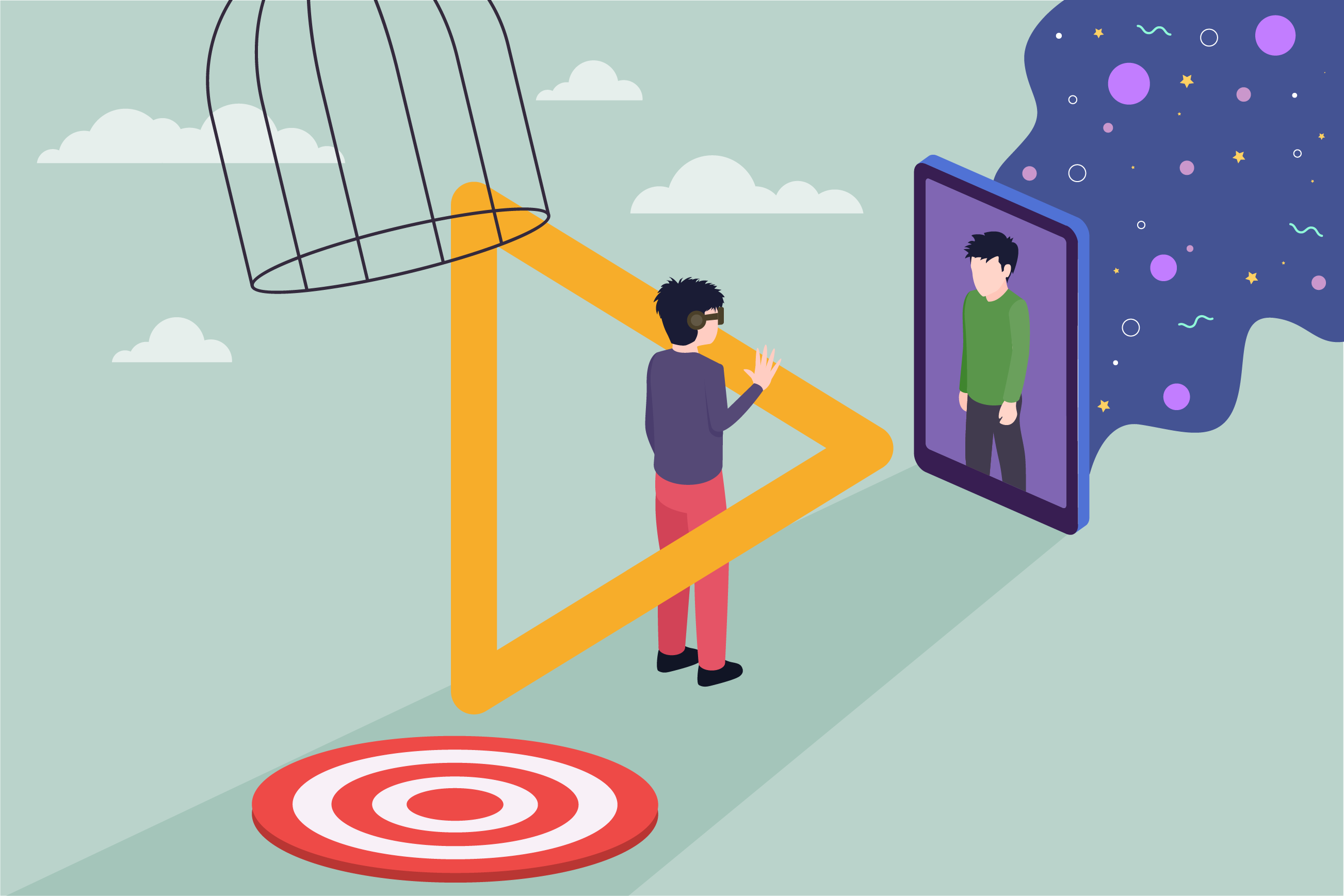

The Consciousness As Content: Going Full Steam Meta In The Metaverse

As our present lives hurtle towards the reality of the metaverse, we should always remember that its development has always been one of a linear progression from all the technology humans have created to simulate a life outside of their own.
While we’re still talking about it as if it’s such a foreign space, the upshot is that you’ve probably already been there. We’ve already discussed the types of content and the various marketing methodology you can find in the metaverse.
Existence in the metaverse is basically another layer on the internet, just like Web 2.0, Web 3.0 and so forth. Virtual concerts, high fashion; these are just some content we’re seeing migrate to the metaverse. Concepts such as Metanomics are eagerly pointing at a whole new currency and way of life.
In a world where the very act of experience becomes content, the possibilities of entertainment are endless, but so are questions about content marketing as a business will function there.
So…are we there yet?
While even smartphones can access the metaverse, they won’t be able to provide the full immersive experience that proper devices built for purpose will deliver.
Enter a wide variety of companies creating devices for this purpose. Which devices you choose as your vehicle will depend on your motivations for going to the metaverse. Meta offers products like Oculus Quest 2 which are more suitable for home and personal use, as well as the pricier Project Cambria for more professional use.
The heat is on
Make no mistake, competition amongst these companies is stiff; Sony announced plans to integrate Discord — an online chat platform used mainly by gamers and with over 140 million users — into its Playstation Network in May 2021. Just recently, Discord rejected Microsoft’s US$12 billion offer to buy the company over, highlighting just how intense this race for supremacy in the metaverse is.
Meta intends to create a space to “bring people together” with its products Horizon Homes and Horizon Worlds focused on creating shared experiences for its users, as Facebook and Instagram have done before.
Marketing imagination
The ways in which these companies market our consciousness as their content is also intriguing, and probably expensive. You have the obvious keynote style content featuring Mark Zuckerberg and all the great things you’re going to do with him in this extension of the internet.
But you also have foodverses like OneRare, the world’s first food metaverse, that is “on a mission to foodify the blockchain and bring the global food industry to Web3.” Whatever that means – which is probably one of the hype problems with new ideas like this.
As we inch closer to a world where we can smell and taste things that are not actually there, the way such experiences are marketed to us can give the impression that we are giving up some agency or security over our lives.
Welcome to the metaverse. Anything to declare?
Going to the metaverse means our identities translate into data once we’re in there, and as it does in the real world, inputting data anywhere carries the risk of it being used by organisations.
Data protection has to be taken to a new level in the metaverse, and Karen Canavan has written extensively about ethics in the metaverse in a series of articles on LinkedIn. A marketing associate at software company ServiceNow, she expresses that “it upsets [her] that someone has to either give up their privacy rights to have accessibility to the Metaverse or choose to keep their privacy and not be able to engage.”
Indeed, VR headsets are able to generate two million data points and unique recordings of body language in the span of 20 minutes, and digital twins of the user can be created in this manner.
Phillip Rosendale notes that Meta VR headsets can track facial expressions, heart rate, gait, posture, body language, and other aspects of ourselves we don’t even perceive, and then use that information to identify and influence us, and has termed this an “existential threat.”
This presents lucrative opportunities for businesses at the expense of the user, and you only have to look at Lex Fridman’s interview with Mark Zuckerberg to realise the gravity of this loophole.
“A privacy and security nightmare”
In this sense, even though there’s a lot of excitement about how content marketing could flourish in the metaverse as we’ve touched on before, there needs to be particular attention paid to the ethics of how brands can do that. It’s not like the metaverse hasn’t already thrown up innumerable ethical dilemmas. Furthermore, NFTs and cryptocurrencies like Bitcoin and Ethereum aren’t exactly as “anonymous” and secure as they profess to be.
As Humphrey Ho notes, “In other words, there is no consumer protection and no guarantee for what you have purchased.”
This brings to mind the concern that unless we’re professionals in the field, we’d probably never be able to cover all our bases and keep ourselves secure. With this vulnerability in mind, you realise that your existence in the metaverse becomes data for companies to prey on. It then becomes clear that more standards on how brands promote their content to users need to be established.
Health or hinder?
There’s also the obvious escalation of problems we already have with the current version of the internet, in particular, mental health conditions and issues.
Even though the metaverse has shown much promise in the treatment of mental health, users are still essentially splitting their identities and lives into two; one in the real world and one in the metaverse. People visiting the metaverse are likely to face even more loneliness than they already do now.
Provisions for the inevitable
It is a platform that people will have to adopt to some extent in their lives eventually, so the problems and compromises people already make on the internet will exist on the metaverse as well. It’s not uncommon that we become so engaged with some form of content that it has some impact on our lives.
But this time, we’re going to be the content for our own enjoyment, if that makes sense. In a sense, our consciousness is commodified when we enter the metaverse.
The question then, is about what is being marketed to people during their time there, and whether their consciousness will be exploited as ‘content’ by companies who built the metaverse. Phillip Rosendale, creator of Second Life, echoes these concerns, suggesting that “behavioural modification as a business model for the metaverse is terrifying.”
It’s more likely though, that like the internet, the metaverse can be used to scale even greater heights of human function and achievement, as well as be a device for scandals we’ve never seen before. The commonality between the two is that our imagination is the limit, and it’s uncertain as to whether any part of the metaverse lies outside that boundary.
Read more from Click2View:
- Why All Events Will Be Hybrid
- Webtoons: The Latest Incarnation of The Korean Invasion
- Is It Better To Pre-record or Livestream Your Virtual Event?
- Brand Identity Crisis, or Cosmetic Surgery?
Sign up to our newsletter for a weekly update on the latest content marketing news. Don’t forget to subscribe to our YouTube channel too!
Click2View is Southeast Asia’s premiere full-service independent B2B content marketing agency servicing clients like Microsoft, Google, Visa, Prudential, and the Lee Kuan Yew School of Public Policy.








